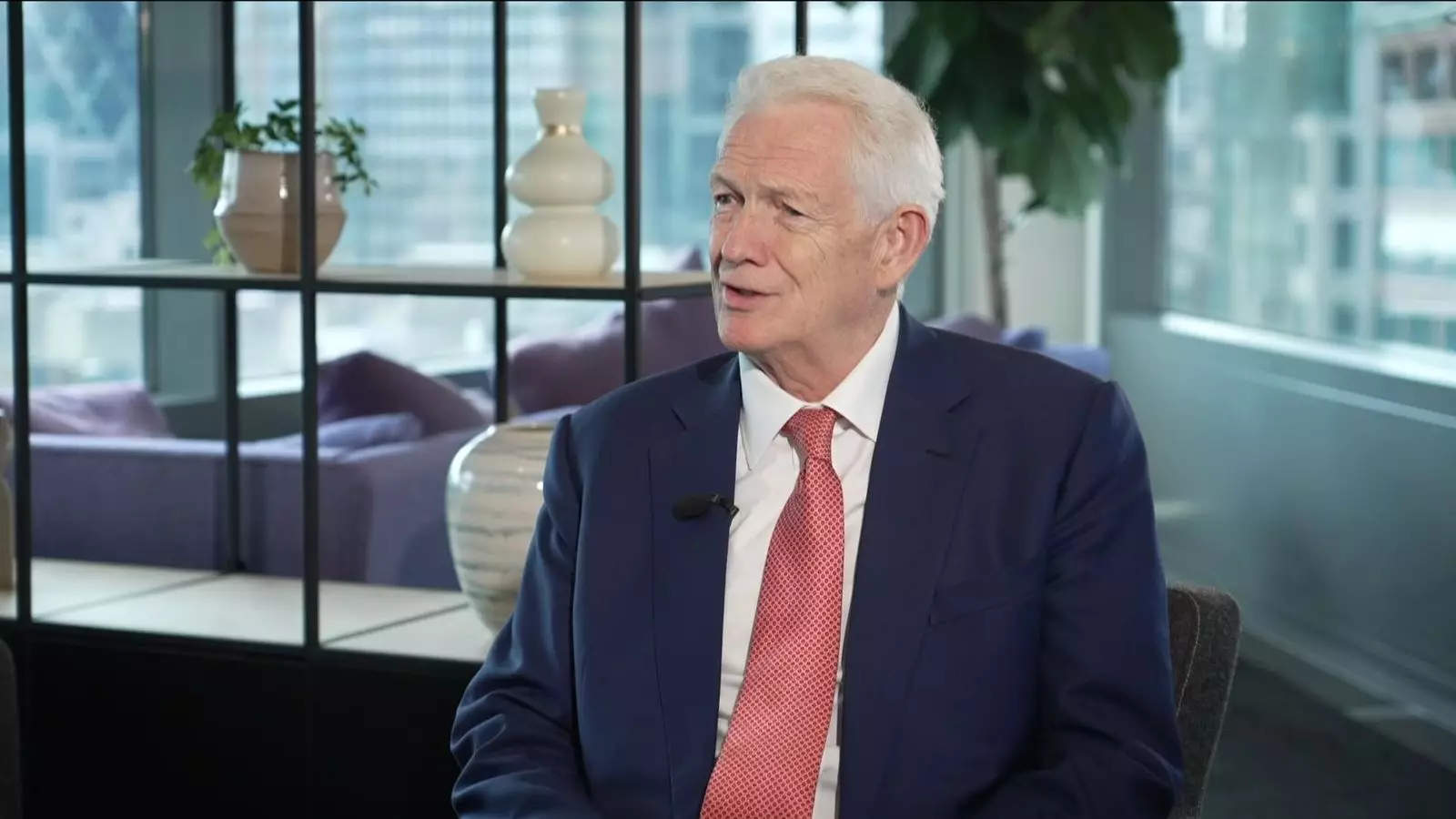In a moment of both reflection and irony, Rick Haythornthwaite, the current Chairman of NatWest, expressed a heartfelt thanks to British taxpayers for their pivotal role in the bank’s survival during the 2008 financial crisis. However, this acknowledgment serves as a stark reminder of a systemic flaw within the very financial system that claimed the livelihoods of thousands, yet allowed privileged institutions like NatWest to emerge unscathed. The public may be willing to accept gratitude, but the lingering resentment surrounding the £46 billion bailout—a staggering amount that left taxpayers nursing a collective loss of £10.5 billion—cannot be easily brushed aside.
Haythornthwaite’s donation of gratitude is both a commendable act and a constrained admission. Though he stated that the bank “has not forgotten the lessons of the past,” his subsequent comments hint at a more self-serving agenda: an eagerness to push for regulatory changes that could again tilt the balance of power back into the hands of banking executives. The reflections within the walls of NatWest seem to echo the very sentiment once prevalent among the financial elite: the need for freedom to operate, rather than accountability to the public trust they betrayed.
A Dangerous Nostalgia for Deregulation
As we analyze the modern banking landscape, one cannot help but feel a swell of unease at Haythornthwaite’s remarks about the pendulum of regulation swinging “slightly too far.” This trivialization of significant regulatory measures introduced post-crisis raises serious concerns about the impending danger of less oversight. Haythornthwaite’s contention that current regulations inhibit growth lacks an acknowledgment of the consequences that unchecked banking practices had on ordinary citizens. His call for an easing of rules, including ring-fencing and capping bonuses, suggests that the Bank is more inclined to prioritize profit margins over customer protection.
The past should serve as a cautionary tale rather than a nostalgic yearning for deregulation. The desire to trim regulatory fat could lead to a situation reminiscent of pre-crisis Britain—a toxic brew of risk-taking and lack of accountability. It is unsettling that some in positions of power appear poised to repeat the very mistakes that cost taxpayers dearly.
The Chancellor’s Open-Mindedness: A Cause for Alarm
Chancellor Rachel Reeves’ open-mindedness towards relaxing regulations introduces another layer of complexity to this already fraught debate. By hinting at the possibility of rolling back crucial reforms, she appears to pander to banking interests, dismissing the realities faced by taxpayers in the wake of the crisis. It is troubling to witness politicians engage with the financial sector with a presumed sense of reform taught by past errors. Trust is not simply a commodity that can be bartered in the halls of power; it is a precious asset that, once lost, requires tremendous effort to rebuild.
While Haythornthwaite’s assurances of not forgetting the past are largely welcomed, they come precariously close to the type of empty platitudes that have marred political discourse for decades. The insistence that we are in a “very different place” doesn’t absolve banks like NatWest from the responsibility of demonstrating genuine accountability. The phrase “a focus on ethics” is frequently invoked, but in reality, it is often a flimsy cover for a continued pursuit of profit that can leave customers behind when the interests of shareholders come into play.
A Contradictory Reality in Banking Culture
The rhetoric surrounding banking culture has transformed significantly since the crisis, yet actual change in behavior remains elusive. When executives speak warmly of focusing on ethics, customer service, and better corporate culture, one wonders whether these are mere selling points designed to assuage fears rather than substantive commitments. The clamoring for an end to the bonus cap and both a return to ring-fencing debates feels like an echo of past indiscretions rather than a step toward a more stable financial future.
Thus, the avowals of being grateful to the taxpayer become overshadowed by an unsettling appetite for deregulation. The dual narrative at play—recognizing public support while simultaneously pushing for favorable conditions for operations—reveals an ironic contradiction at the heart of modern banking. As NatWest embarks on a new chapter, it teeters precariously on the edge of remembering the past while flirting with its potential to repeat it. In this curious dance of gratitude and greed, we must remain vigilant about who truly benefits.


Leave a Reply